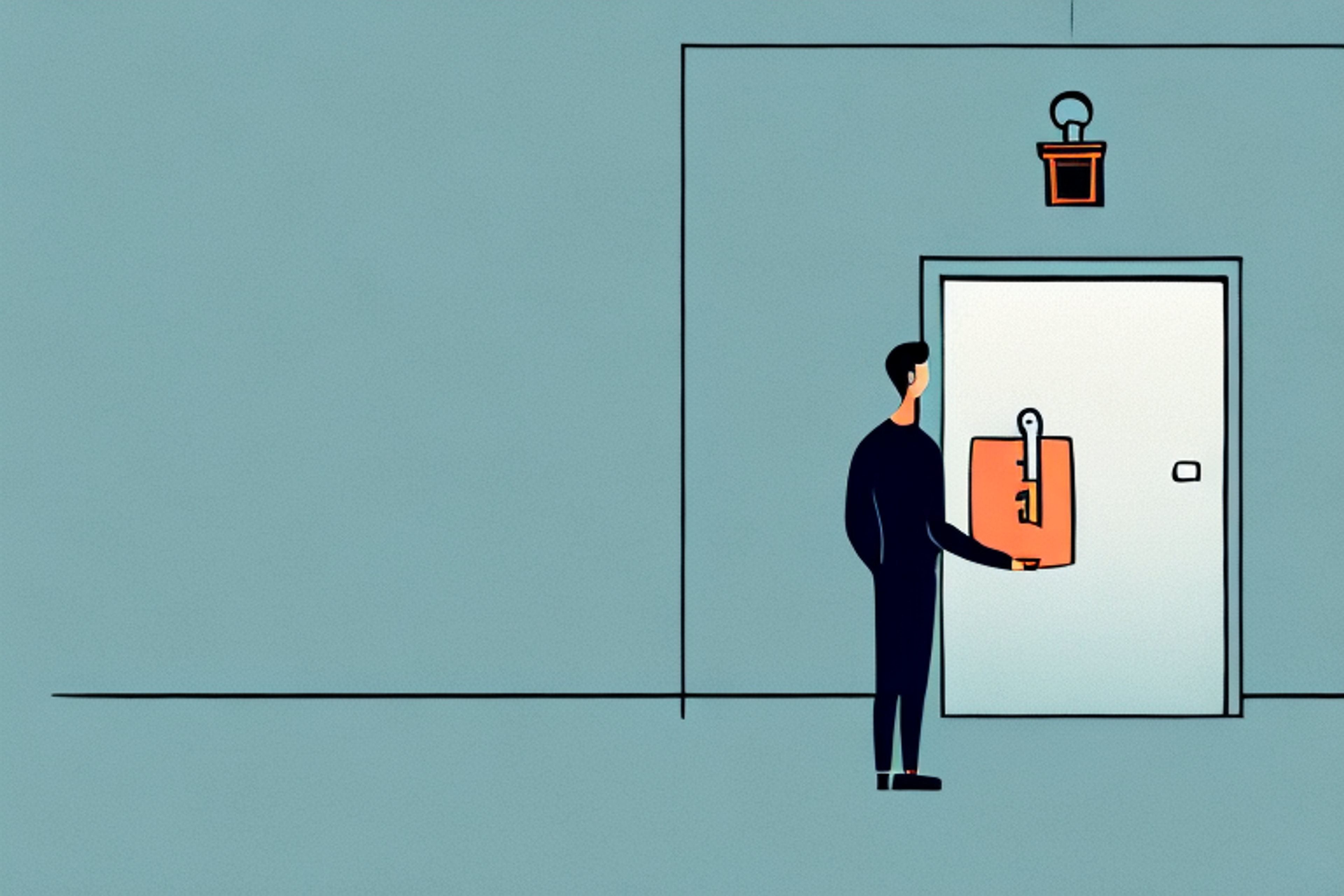Healthcare Behavioral Interview Questions: Preparation and Best Responses
If you're preparing for a healthcare behavioral interview, this article is a must-read.
Posted March 6, 2025

Table of Contents
The hiring process for healthcare jobs can be a rather daunting experience. While technical skills and qualifications are necessary, behavioral skills are just as crucial for success in these positions. More and more healthcare organizations are turning to behavioral interviewing over traditional methods as a way to assess candidates' soft skills. Behavioral interviews aim to uncover how job applicants have handled different work situations in the past and how they might approach challenges in the future. It is important to understand the importance of this type of interview and how to best prepare for it.
Understanding the Importance of Behavioral Interviews in Healthcare Hiring
Employers in the healthcare industry value strong and effective communication skills, the ability to work effectively in a team, a problem-solving attitude and compassion for patients. These skills are critical to delivering high quality patient care. Behavioral interviews can help determine if a candidate has these skills. A behavioral interview is an excellent way for employers to get a sense of how candidates have dealt with situations and people in the past and how they might interpret and handle similar situations in the future.
Behavioral interviews are structured interviews that focus on a candidate's past experiences and behaviors. The interviewer will ask questions that require the candidate to provide specific examples of how they have handled situations in the past. This type of interview allows the employer to assess the candidate's ability to handle difficult situations, work under pressure, and communicate effectively.
It is important for healthcare employers to use behavioral interviews because they provide a more accurate assessment of a candidate's skills and abilities. Traditional interviews may only provide surface-level information about a candidate, while behavioral interviews allow the employer to dig deeper and get a better understanding of how the candidate will perform in the role. By using behavioral interviews, healthcare employers can make more informed hiring decisions and ensure that they are hiring the best candidates for the job.
Types of Behavioral Interview Questions Commonly Asked in Healthcare Interviews
Behavioral interview questions that are used in the healthcare industry are designed to reveal if a candidate has demonstrated the skills crucial in a healthcare workplace. Examples of behavioral interview questions in healthcare may include, how the candidate has dealt with a difficult patient, how they have handled a medical error or how they have worked with colleagues from different departments. These questions aim to evaluate the candidate's competencies and experience in a way that isn't possible by just looking at their resume or cover letter.
Another common type of behavioral interview question in healthcare is related to the candidate's ability to handle stressful situations. For example, the interviewer may ask the candidate to describe a time when they had to make a quick decision in a high-pressure situation. This type of question helps the interviewer assess the candidate's ability to remain calm and focused under pressure, which is a crucial skill in the fast-paced and often stressful healthcare environment.
Preparing for a Behavioral Interview: Tips and Strategies
Preparation is the key to successful performance in expert interviews. You should begin by researching the company to get a sense of what its core values and mission are. It's also important to review the job description and note down which competencies have been listed and consider how you may demonstrate them. Consider practicing your answers with a friend. Time yourself when you are answering questions, and ensure your answers are clear and concise. It's important to convey your experience effectively, and explain how you have demonstrated the competencies in a clear, concise and meaningful way.
Another important aspect of preparing for a behavioral interview is to anticipate the types of questions that may be asked. Behavioral interview questions are designed to assess how you have handled specific situations in the past, so it's important to think about examples from your previous work experience that demonstrate your skills and abilities. You can also prepare by reviewing common behavioral interview questions and brainstorming potential answers. Remember to use the STAR method (Situation, Task, Action, Result) when answering questions to provide a clear and structured response.
How to Research the Healthcare Company Before Your Interview
When you are preparing for a behavioral interview in healthcare, it's important to research the healthcare organization you are applying to. You can visit the company's website to learn more about its mission, values, and history. Consider also reaching out to current or former employees to get a sense of what it's really like to work for that organization. This information can help provide you with insight into the organization's values, and help you prepare for the interview.
Another way to research the healthcare company before your interview is to look for news articles or press releases about the organization. This can give you an idea of any recent developments or changes within the company, such as new leadership or expansion plans. Additionally, you can check out the company's social media pages to see how they engage with their audience and what kind of content they share. This can give you a sense of the company's culture and values, and help you tailor your interview responses to align with their mission and goals.
The STAR Method: A Guide to Structuring Your Responses to Behavioral Questions
The STAR method is a valuable tool when structuring responses to behavioral interview questions. It is an acronym that stands for Situation, Task, Action, and Result. It’s a way to answer behavioral questions comprehensively and help you keep your answers on track. You can describe situations where you demonstrated the skills required for success in the healthcare industry. You should also share the task you had at hand, what action you took, and what the result was.
Using the STAR method can help you provide specific examples of your skills and experience, which can make you stand out from other candidates. It also allows you to showcase your problem-solving abilities and how you handle difficult situations. By using this method, you can demonstrate your ability to think critically and make sound decisions.
It’s important to practice using the STAR method before your interview. You can prepare by thinking of examples from your past experiences that demonstrate your skills and abilities. This will help you feel more confident and prepared during the interview process. Remember to be concise and specific in your responses, and always tie your answers back to the job requirements and the company’s mission and values.
Examples of Successful Answers to Common Healthcare Behavioral Questions
Sample answers to behavioral questions in healthcare can serve as a template for your response. In some cases, personalizing these answers based on your experience makes your response stronger. Some examples of successful answers to behavioral interview questions in healthcare include how you have dealt with difficult patients, handled conflicts with colleagues, and managed competing priorities. You should always remember to use the STAR method while structuring your responses.
It is also important to remember that behavioral questions in healthcare interviews may vary depending on the specific role and organization. For example, if you are applying for a position in a hospital, you may be asked about your experience working in a fast-paced environment and how you prioritize tasks. On the other hand, if you are applying for a position in a long-term care facility, you may be asked about your experience working with elderly patients and how you handle challenging behaviors. Therefore, it is crucial to research the organization and the role beforehand and prepare accordingly.
How to Highlight Your Skills and Experience in Your Responses
The best way to highlight your skills and experience effectively is by giving a detailed example. However, it's also important to be succinct and to the point. Interviewers do not want to hear long and drawn-out answers. Showing how your prior experiences apply to the job you are applying for is an important aspect of framing your responses.
Another way to effectively highlight your skills and experience is by using specific keywords and phrases that are relevant to the job description. This not only shows that you have read and understood the job requirements, but also demonstrates your expertise in the field. Additionally, using numbers and statistics to quantify your achievements can make your responses more impactful and memorable.
It's also important to remember that highlighting your soft skills, such as communication and teamwork, can be just as important as showcasing your technical abilities. Providing examples of how you have successfully collaborated with others or effectively communicated with clients can demonstrate your overall fit for the job and the company culture.
Overcoming Nervousness and Anxiety During Your Healthcare Interview
It's not uncommon to feel nervous during an interview, especially when it's behavioral. However, some assertive behavior is needed, and the ability to be calm and composed during the interview is crucial. Taking deep breaths, being honest, and avoiding caffeine before the interview can help reduce anxiousness. Prepare well for the interview in advance, review your resume, review the job description, and take some time to practice your responses to potential questions.
Another way to overcome nervousness and anxiety during your healthcare interview is to visualize yourself succeeding. Imagine yourself confidently answering questions and impressing the interviewer. This positive visualization can help boost your confidence and reduce anxiety. Additionally, try to focus on the present moment and the task at hand, rather than worrying about the outcome of the interview. Remember that the interview is just one step in the job search process, and there will be other opportunities if this one doesn't work out.
Finally, it's important to remember that the interviewer wants you to succeed. They are looking for a qualified candidate to fill the position, and they want to see you do well. Try to view the interview as a conversation rather than a test, and remember that the interviewer is on your side. By staying calm, prepared, and confident, you can overcome nervousness and anxiety and make a positive impression during your healthcare interview.
What Not to Say: Mistakes to Avoid During a Behavioral Interview
There are certain things that should be avoided during a behavioral interview, such as talking negatively about your current or past employer, being unprepared, or being too informal or overly familiar with the interviewer. Any answer that lacks detail or specifically doesn't answer the question is also not ideal. As well as avoiding these common mistakes, it's important to focus on giving specific examples and demonstrating your skills in a useful and meaningful way.
How to Follow Up After a Healthcare Behavioral Interview
It's essential to send a thank you note within 24 hours after the interview, reiterating your interest and thanking them for the opportunity. It's also beneficial to briefly reflect on the interview, mentioning some of the strengths and competencies you demonstrated. This communication shows professionalism to the interviewer and forms the basis of a potential future employee-employer relationship.
Conclusion: Mastering the Art of Behavioral Interviews in Healthcare Hiring
Behavioral interviews help healthcare organizations assess a candidate's skills and experience in a meaningful way. Preparing for an interview, researching the company, and practicing your responses can increase the probability of receiving a job offer. Remember to structure your answers directly and effectively, using the STAR method. Keeping calm, concise, and professional is essential for performing well in any interview.



















